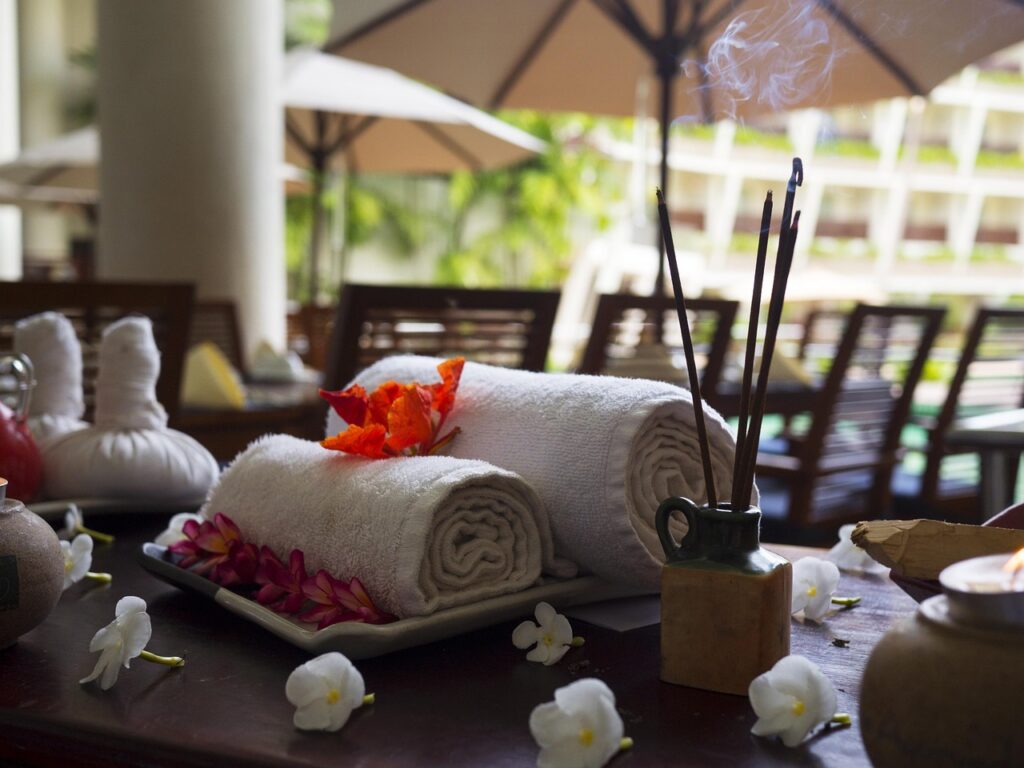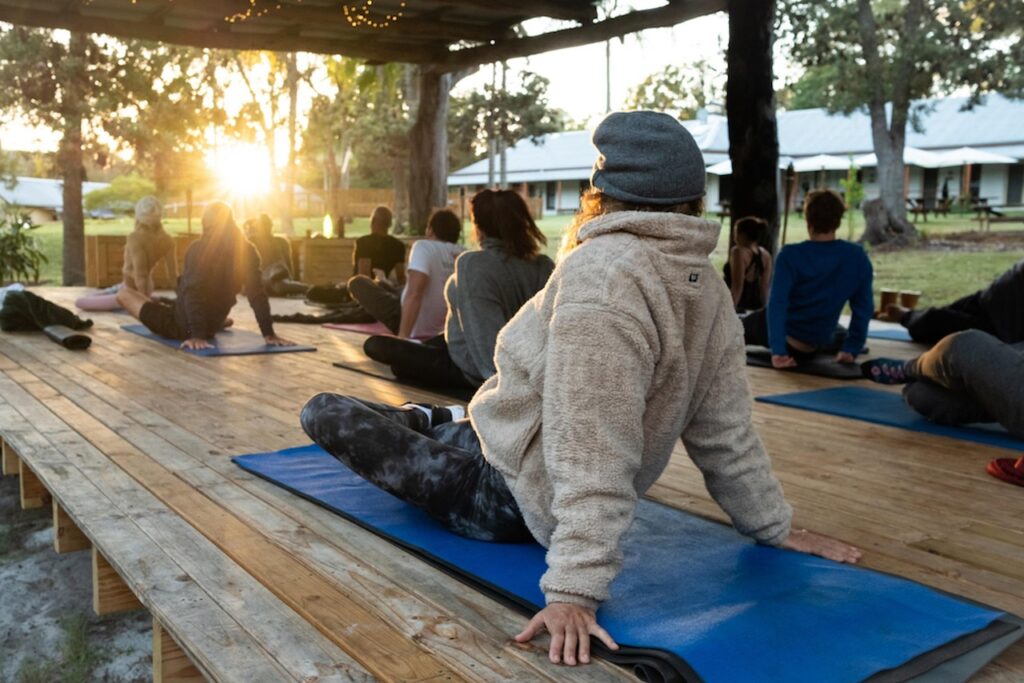In a culture where busyness is often worn like a badge of honor, the idea of stepping away — even for a few days — can feel radical. Or even selfish. But here’s the truth: it’s not selfish to need space. It’s wise.
If you’ve been wondering, “Is a retreat right for me?”, you’re not alone. Many people wrestle with the same question — especially if they’ve never been on a retreat before. This guide will help you explore the emotional, practical, and personal signs that say: it might be time.
🧭 What Exactly Is a Wellness Retreat?
Let’s start here: a wellness retreat is a curated experience designed to support your well-being through rest, reflection, movement, and nourishment. Unlike a vacation, a retreat focuses on healing and intentional growth, often in a nature-rich setting away from daily distractions.
You’ll typically find:
- Guided yoga or meditation
- Healthy, intentional meals
- Digital detox time
- Workshops on self-care, emotional health, or creativity
- Optional therapies like breathwork, reiki, massage, or coaching
- Quiet time for reflection, journaling, or connecting with others
But more than the schedule, retreats provide a sacred pause — a chance to hear your own voice again.
🤔 Why Are You Asking the Question?
Most people ask “Is a retreat right for me?” when they’re:
- Feeling emotionally worn out
- Overwhelmed by daily life
- Sensing that “something’s off” but can’t name it
- Craving time alone but not isolation
- Looking for change, healing, or clarity
The fact that you’re even asking the question means some part of you is reaching for restoration.
🧘 Who Is a Retreat Not For?
It’s important to be honest here too. A retreat might not be right if:
- You’re in a current mental health crisis and need clinical care
- You’re not ready to be still or unplug
- You’re expecting immediate transformation without doing the work
- You’re simply looking for a party or sightseeing trip
- You feel unsafe being around others right now
Wellness retreats are powerful, but they are not therapy replacements. They can support therapeutic growth — but they aren’t meant to replace a therapist, psychiatrist, or urgent care plan.
🔍 Signs You’re Retreat-Ready
Here are real-world indicators you may benefit from attending a wellness retreat:
1. You’ve Tried Resting — and Still Feel Exhausted
If sleep, weekends off, or a vacation haven’t helped you feel recharged, your depletion may be emotional or spiritual. Retreats support that deeper layer of recovery.
2. You Crave Silence or Simplicity
You find yourself avoiding noise, clutter, or digital distractions. This is your nervous system asking for space to process.
3. You’re Navigating Change or Grief
Divorce, job loss, a move, a death — any major shift creates emotional upheaval. A retreat can be a gentle container for reflection and grounded healing.
4. You Feel Stuck
Even if nothing is “wrong,” you might feel unmotivated, uninspired, or lost. Retreats can reconnect you with purpose and intuition.
5. You Want to Begin Again
Maybe you’ve been healing for a while, and you’re ready for your next chapter. A retreat can help you mark that transition with intention.
🧬 The Science of Retreat Healing
A 2019 study in Global Advances in Health and Medicine followed participants through a 5-day wellness retreat. The outcomes were significant:
- Reduced anxiety and depression symptoms
- Improved mindfulness and self-awareness
- Sustained emotional clarity weeks after the retreat
This aligns with what therapists call the “pattern interrupt” effect. When you remove yourself from your routine and enter a supportive environment, your brain becomes more open to change — biologically and emotionally.
🗣️ But What If I’m Not “Spiritual” or Into Yoga?
That’s okay. Wellness retreats come in all shapes — from silent meditation retreats to hiking-based adventures to artist residencies focused on emotional healing. You don’t need to be flexible or “spiritual” to attend. You just need to be:
- Open to reflection
- Ready to rest
- Curious about your own healing
- Willing to disconnect and reconnect
💬 Common Hesitations — and Honest Reframes
“I don’t have time.”
You may not have time not to. A few days of realignment now can prevent months of burnout later.
“It’s too expensive.”
Not all retreats are luxury-priced. Many budget-friendly or drive-to retreats offer shared lodging, sliding-scale pricing, or shorter weekend formats.
“I don’t want to go alone.”
Many retreat attendees arrive solo. In fact, it’s one of the most common — and empowering — ways to attend. You’ll likely find kindred spirits, not strangers.
“What if I can’t relax?”
Then you’re the perfect candidate. The inability to rest often signals the deepest need for a structured, caring environment that helps you learn how to soften.
🧘 A Retreat Could Be Right for You If…
- You’re feeling “off” but can’t explain why
- You long for space to hear yourself think
- You want to change something, but don’t know how
- You’re ready to unplug from distraction and plug into yourself
- You’ve said “I just need to get away” more than twice this month
🗺️ How to Choose the Right Retreat
Not every retreat will fit every person. Ask yourself:
- What do I want to feel after this retreat?
- Do I prefer group settings or more solitude?
- What’s my comfort level with silence, movement, or emotional sharing?
- How far am I willing to travel?
- What’s my budget?
💬 Final Thoughts
A wellness retreat isn’t a luxury. It’s a resource. A turning point. A soft, steady way to say: I’m ready to come back to myself.
If you’ve been wondering if a retreat is right for you, the answer may not be on your calendar — it might be in your breath. In your body. In that quiet inner voice whispering: “It’s time.”
You don’t have to heal everything. You just have to show up.
👉 Ready to Retreat?
Explore verified, peaceful wellness retreats near you — all within driving distance, all designed to restore.







